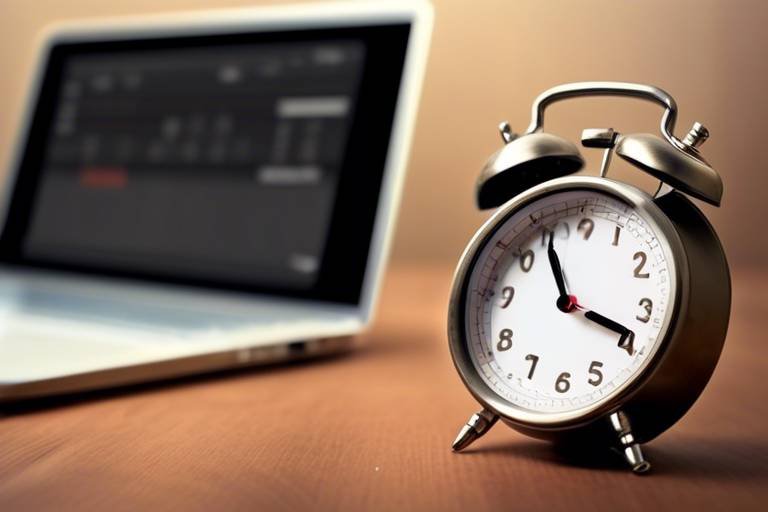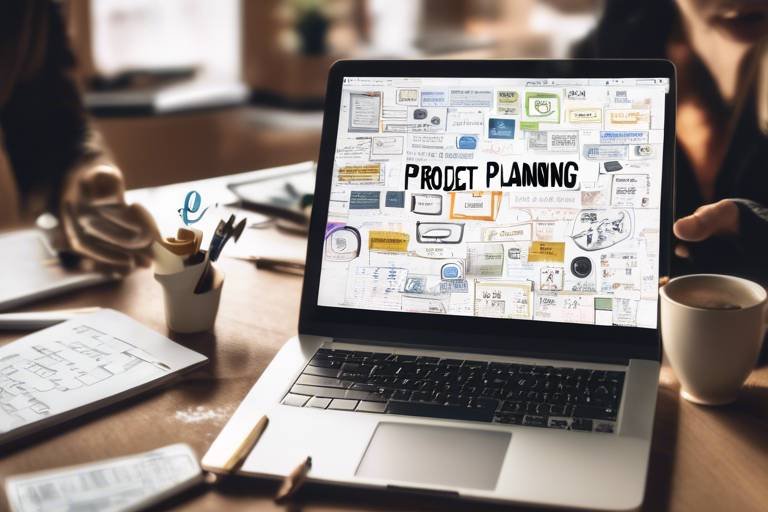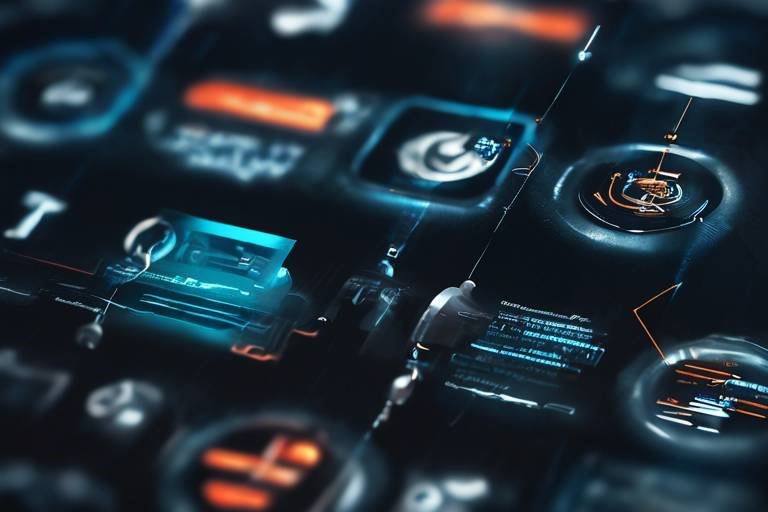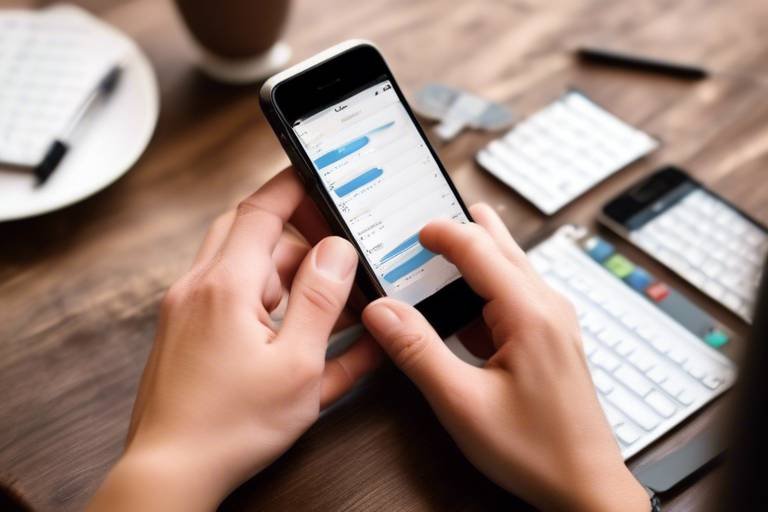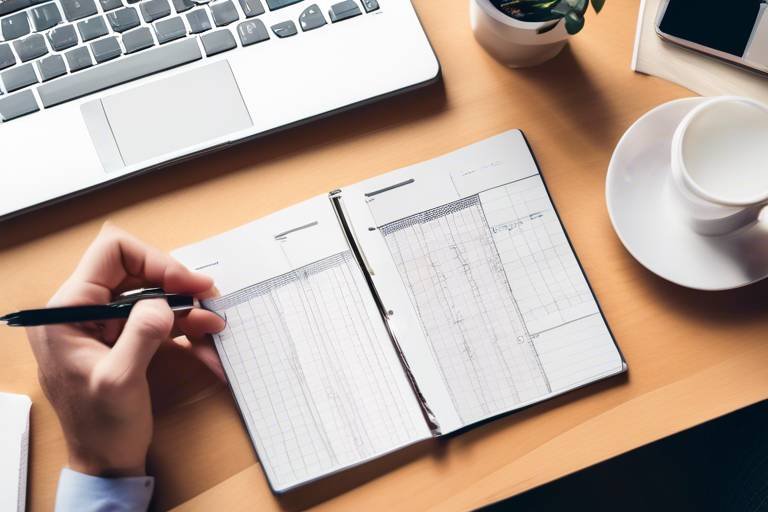How to Use Technology for Better Time Tracking
Time tracking is a crucial aspect of both personal and professional life, ensuring that tasks are completed efficiently and effectively. With the advancements in technology, there are now various tools and systems available to help individuals and teams track their time accurately. By utilizing technology for time tracking, you can enhance productivity, improve time management, and achieve better work-life balance.
One of the most popular ways to track time effectively is through the use of time tracking apps. These apps offer a convenient way to monitor your daily activities, track projects, and manage tasks all in one place. With features like timers, reminders, and detailed reports, time tracking apps can help you stay organized and focused throughout the day.
Automated time tracking systems take time tracking to the next level by eliminating the need for manual input. These systems use advanced algorithms to record and analyze the time spent on different activities automatically. By removing the manual effort required for time tracking, automated systems can streamline the process and provide more accurate data for analysis.
GPS tracking technology has revolutionized time management by allowing users to track their location-based activities in real-time. By integrating GPS tracking into time management systems, individuals can monitor their movements and activities throughout the day. This not only helps in tracking time more accurately but also enables better decision-making based on location data.
Biometric time clocks offer a secure and efficient way to track employees' work hours. By using unique biometric identifiers such as fingerprints or facial recognition, these clocks ensure accurate time tracking and help prevent time theft in the workplace. With biometric time clocks, employers can have peace of mind knowing that time tracking is reliable and tamper-proof.
For teams working on projects collaboratively, time tracking software designed specifically for teams can be a game-changer. These tools allow team members to track their time individually and collectively, facilitating better collaboration, project management, and resource allocation. By centralizing time tracking data, teams can work more efficiently and effectively towards their goals.
Integrating time tracking software with project management tools further enhances the accuracy and efficiency of time tracking. By syncing time tracking data with project timelines and tasks, teams can ensure that time spent on specific activities is accurately recorded. This integration not only saves time but also provides valuable insights into project progress and resource utilization.
Wearable technology such as smartwatches and fitness trackers offer a convenient way to track time and activities on the go. By wearing these devices, individuals can monitor their productivity, track physical activities, and manage their time effectively. Wearable technology provides a hands-free approach to time tracking, allowing users to focus on their tasks without interruptions.
With the rise of remote work, technology has become essential in facilitating time tracking for remote workers. Employers can use time tracking tools to monitor remote employees' productivity, track their work hours, and ensure efficient work allocation. By leveraging technology for time tracking, remote teams can stay connected, productive, and accountable regardless of their physical location.
Time Tracking Apps
Time tracking apps have revolutionized the way individuals and businesses manage their time. These apps offer a convenient and efficient way to monitor and optimize daily activities, projects, and tasks. By utilizing time tracking apps, users can gain valuable insights into how they allocate their time and identify areas for improvement.
One of the key benefits of time tracking apps is their ability to provide detailed reports and analytics on time usage. Users can easily track how much time is spent on specific tasks, projects, or clients, allowing for better time management and increased productivity. With features like customizable timers, activity categorization, and data visualization, these apps offer a comprehensive solution for time tracking.
Moreover, time tracking apps often come with integrations with other tools and platforms, such as calendars, project management software, and invoicing systems. This seamless integration enables users to streamline their workflow and ensure accurate time tracking across different activities.
Some advanced time tracking apps even offer features like automatic time tracking, idle time detection, and reminders to ensure users stay on track throughout the day. By leveraging the capabilities of these apps, individuals and teams can optimize their time management strategies and achieve their goals more effectively.
In conclusion, time tracking apps are powerful tools that can significantly enhance time management, productivity, and efficiency. Whether you are a freelancer looking to bill clients accurately or a project manager seeking to optimize team performance, incorporating a time tracking app into your routine can lead to tangible improvements in how you manage your time.
Automated Time Tracking Systems
Automated time tracking systems have revolutionized the way individuals and organizations monitor and manage their time. By leveraging advanced technology, these systems eliminate the need for manual time tracking, allowing for more accurate and efficient recording of time spent on various activities.
One of the key advantages of automated time tracking systems is their ability to capture time data in real-time, providing instant insights into productivity levels and time utilization. This real-time data can be invaluable for individuals looking to optimize their daily routines or businesses seeking to improve operational efficiency.
Moreover, automated time tracking systems can seamlessly integrate with other tools and software, such as project management platforms, to provide a comprehensive overview of time allocation across different projects and tasks. This integration streamlines the process of tracking time and ensures that all time-related data is centralized and easily accessible.
Furthermore, these systems often come equipped with advanced reporting features that enable users to generate detailed time reports, analyze trends, and identify areas for improvement. By harnessing the power of automation, individuals and organizations can make informed decisions to enhance productivity and achieve better time management.
GPS Tracking for Time Management
GPS tracking technology has revolutionized time management by offering precise location-based tracking capabilities. By integrating GPS tracking into time management systems, individuals and businesses can monitor activities in real-time, allowing for better tracking of time spent on specific tasks and projects. This technology not only enhances productivity but also provides valuable insights into how time is allocated throughout the day.
Biometric Time Clocks
Biometric time clocks are revolutionizing the way businesses track and manage employee attendance. These advanced systems utilize unique biological traits, such as fingerprints or facial recognition, to accurately record clock-in and clock-out times. By eliminating the possibility of buddy punching or unauthorized overtime, biometric time clocks ensure precise time tracking and payroll accuracy.
One of the key benefits of biometric time clocks is their efficiency in preventing time theft. Employees must physically verify their identities through biometric scans, reducing the likelihood of fraudulent time entries. This not only saves businesses money by accurately compensating employees for actual hours worked but also fosters a culture of accountability and trust in the workplace.
Moreover, biometric time clocks offer enhanced security measures compared to traditional time tracking methods. By requiring unique biological markers for authentication, these systems protect sensitive employee data and prevent unauthorized access to time tracking records. This added layer of security ensures compliance with privacy regulations and safeguards confidential information.
With the integration of biometric time clocks, businesses can streamline their attendance tracking processes and minimize administrative burdens. The automated nature of biometric systems eliminates the need for manual timekeeping, reducing errors and ensuring seamless payroll processing. This not only saves time for HR personnel but also enhances overall operational efficiency.
Time Tracking Software for Teams
When it comes to enhancing teamwork and boosting productivity, time tracking software designed for teams plays a crucial role. These specialized tools offer a comprehensive solution for organizations to efficiently monitor and manage the time spent on various projects and tasks.
One of the key advantages of using time tracking software for teams is the ability to centralize time data, allowing team members and managers to access real-time information on project progress and resource allocation. This transparency fosters better communication and collaboration among team members, leading to improved project outcomes.
Moreover, time tracking software for teams often comes with advanced features such as customizable reporting, task categorization, and integration with project management tools. These functionalities enable teams to streamline their workflow, identify bottlenecks, and optimize their time usage for maximum efficiency.
By utilizing time tracking software tailored for teams, organizations can gain valuable insights into their operational efficiency, identify areas for improvement, and make data-driven decisions to enhance overall productivity. With the ability to track time accurately and analyze performance metrics, teams can work more effectively towards achieving their goals.
Integration with Project Management Tools
Integration with project management tools is crucial for ensuring seamless collaboration and efficient project execution. By integrating time tracking software with project management tools, teams can accurately track time spent on each task and project, leading to improved productivity and resource allocation.
This integration allows project managers to have real-time visibility into the progress of tasks, identify bottlenecks, and make informed decisions to optimize project timelines. It also enables team members to log their time directly within the project management tool, eliminating the need for manual time entry and reducing the risk of errors.
Furthermore, integrating time tracking with project management tools provides valuable insights into project costs, profitability, and resource utilization. By analyzing time data alongside project milestones and deliverables, organizations can better estimate future projects, allocate resources effectively, and improve overall project performance.
Wearable Technology for Time Tracking
Wearable technology has revolutionized the way we track our time and activities, offering convenience and efficiency like never before. Smartwatches and fitness trackers are not just stylish accessories but powerful tools for monitoring our daily routines and enhancing productivity on the go.
Imagine having a device on your wrist that not only tells time but also tracks your steps, heart rate, and even reminds you to stand up and move after sitting for too long. These features are not just about fitness; they can also be utilized for time tracking and productivity management.
With wearable technology, you can seamlessly track the time spent on various tasks, set reminders for important deadlines, and even receive notifications for upcoming meetings or events. It's like having a personal assistant right on your wrist, keeping you on track and focused throughout the day.
Furthermore, wearable technology allows for real-time monitoring of activities, providing instant feedback on your progress and performance. Whether you're working on a project, exercising, or attending a meeting, you can easily track the time spent on each activity and make adjustments to optimize your efficiency.
Additionally, wearable technology offers integration with other devices and software, enabling seamless synchronization of data across multiple platforms. This means you can access your time tracking information on your smartphone, tablet, or computer, ensuring you stay organized and informed wherever you are.
In conclusion, wearable technology is not just a fashion statement; it's a powerful tool for time tracking, activity monitoring, and productivity enhancement. By leveraging the capabilities of smartwatches and fitness trackers, you can take control of your time and make the most out of every moment.
Time Tracking for Remote Work
Remote work has become increasingly popular in today's digital age, allowing employees to work from anywhere in the world. However, managing remote teams efficiently requires effective time tracking solutions. Technology plays a crucial role in enabling employers to monitor productivity and ensure that work is being completed efficiently.
By utilizing time tracking software specifically designed for remote work, employers can track the time spent on various tasks and projects. This not only helps in monitoring productivity but also aids in identifying any bottlenecks or inefficiencies in the workflow.
Moreover, integrating time tracking tools with project management software allows for seamless tracking of time spent on specific projects. This integration provides a comprehensive overview of how time is allocated across different tasks, enabling better resource management and project planning.
For remote workers, wearable technology such as smartwatches can be utilized for time tracking. These devices not only track time but also monitor activities and productivity levels, providing valuable insights into work patterns and habits.
Additionally, time tracking for remote work can be enhanced through the use of GPS technology. By incorporating GPS tracking into time management systems, employers can monitor the location-based activities of remote employees, ensuring that work is being carried out as per schedule.
Overall, technology offers a range of solutions for effective time tracking in remote work settings, enabling employers to manage and monitor their remote teams with efficiency and accuracy.
Frequently Asked Questions
- What are the benefits of using time tracking apps?
Time tracking apps offer the advantage of efficiently monitoring and managing daily activities, projects, and tasks. They provide insights into how time is being spent, helping individuals and teams improve productivity and time management.
- How can automated time tracking systems enhance efficiency?
Automated time tracking systems streamline the process of recording and analyzing time spent on various activities without manual input. This eliminates the need for manual time entries, reducing errors and saving time for more productive tasks.
- Why is GPS tracking technology useful for time management?
GPS tracking technology can be integrated into time management systems to monitor location-based activities. This feature helps in tracking field work, remote tasks, and ensuring accurate time allocation for different locations.
- What advantages do biometric time clocks offer in the workplace?
Biometric time clocks provide accurate tracking of employees' work hours by using unique biological characteristics like fingerprints or facial recognition. This helps in reducing time theft and ensuring fair pay based on actual work hours.
- How can time tracking software benefit teams?
Time tracking software designed for teams improves collaboration, project management, and resource allocation by providing real-time insights into each team member's activities. It helps in identifying bottlenecks, optimizing workflows, and enhancing overall team productivity.
- Why is integration with project management tools important for time tracking software?
Integrating time tracking software with project management tools ensures accurate tracking of time spent on specific tasks and projects. This integration streamlines the workflow, improves project planning, and enhances overall project efficiency.
- How can wearable technology aid in time tracking?
Wearable technology, such as smartwatches and fitness trackers, can be leveraged for tracking time, activities, and productivity on the go. They provide convenient ways to monitor tasks, set reminders, and stay organized throughout the day.
- How does technology facilitate time tracking for remote workers?
Technology enables employers to monitor the productivity of remote workers by tracking their work hours, tasks, and progress. This ensures efficient work allocation, transparent communication, and effective management of remote teams.

